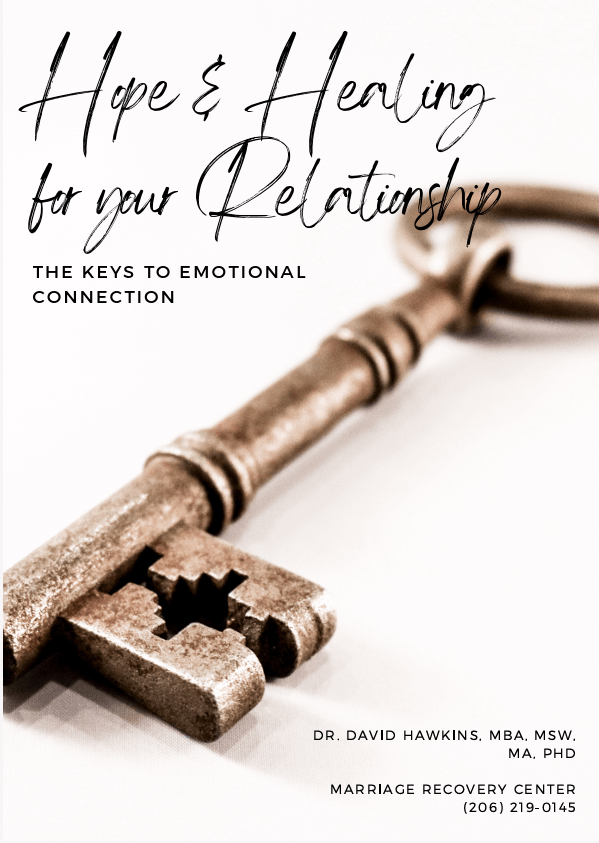Emotional abuse can be incredibly disorienting. Victims often experience confusion, brain fog, and emotional exhaustion, making it difficult to think clearly or make good decisions for their well-being. When caught in the cycle of emotional or narcissistic abuse, it can feel overwhelming, isolating, and even hopeless. However, there are three crucial things victims of emotional abuse must know. Holding onto these truths can help ground you and provide clarity as you navigate your way toward healing and freedom.
1. It’s Not Your Fault
While this may seem obvious from an outside perspective, emotional abusers are skilled at twisting reality, leaving their victims feeling responsible for the mistreatment they endure. If you have been in an emotionally abusive relationship, you may find yourself constantly questioning:
- Did I do something wrong?
- Am I overreacting?
- How can I change to make them stop treating me this way?
This is a common response because emotional abusers use tactics such as blame-shifting, deflecting, minimizing, and justifying their actions. Every attempt you make to resolve conflict is met with resistance, and you may feel like you’re running in circles trying to decode their behavior. This relentless confusion can lead to self-doubt, making you feel as though you are the problem.
But here’s the truth: it is not your fault. No amount of effort, patience, or sacrifice on your part can stop an abuser from engaging in harmful behaviors unless they take responsibility for themselves. Emotional abuse is rooted in profound immaturity, selfishness, arrogance, and a need for power and control. No matter how much you try to fix the situation, the abuser must first acknowledge their wrongdoing and seek help. Until that happens, you are not responsible for their choices.
If you find yourself bending over backward trying to make things better, remind yourself: I am doing my best, and it is not my fault. Drive that truth into the ground like a stake, and hold on to it tightly. You deserve to break free from the endless cycle of self-blame.
2. You Deserve Respect and Care
This may seem like a basic statement, but it’s one that emotional abuse victims often struggle to believe. Many abusers create an environment where their victim feels unworthy of kindness, generosity, and love. Over time, this can wear down your self-esteem and make you feel like you don’t deserve better treatment.
However, the truth is that every human being deserves respect and care, including you.
- You deserve kindness.
- You deserve to be in a relationship where both people work through problems together.
- You deserve to live in peace, not constant conflict and tension.
A healthy relationship is built on mutual effort, compromise, and understanding. If you find yourself in a situation where your feelings, needs, and concerns are constantly dismissed, minimized, or ignored, it is a sign that something is deeply wrong. You are not asking for too much by expecting basic decency and kindness.
If you feel stuck in an abusive situation, remind yourself daily: I deserve respect and care. Even if the abuser refuses to acknowledge your worth, you must learn to believe in it yourself. Your well-being is important, and you deserve to surround yourself with people who treat you with dignity.
3. Help and Healing Are Available
When trapped in emotional abuse, it often feels like there is no way out. The weight of the situation can be crushing, and you might feel alone in your pain. But even though it may not seem like it right now, help and healing are available.
You do not have to go through this alone. There are many resources that can support you on your journey toward healing, including:
- Trusted friends or family members who understand and believe you.
- Professional counselors who specialize in emotional abuse and can guide you through the recovery process.
- Support groups where you can connect with others who have been through similar experiences.
- Educational resources such as books, podcasts, and videos that can help you better understand emotional abuse and how to heal from it.
Seeking help can feel daunting, especially when emotional abuse has left you feeling drained and defeated. But taking even small steps toward support can make a significant difference. Healing is possible, even if it doesn’t happen overnight. Every step you take toward understanding your situation, setting boundaries, and prioritizing your well-being is a step toward freedom.
3 Things Victims of Emotional Abuse Must Know – Final Thoughts
If you are a victim of emotional abuse, remember these three truths:
- It’s not your fault. You are not to blame for the abuse, and nothing you do can change someone who refuses to take responsibility for their actions.
- You deserve respect and care. Every human being does, and you are no exception. A healthy relationship should bring peace, not pain.
- Help and healing are available. You are not alone, and there are people and resources ready to support you in your journey toward healing.
Even though emotional abuse can leave deep scars, you do not have to remain trapped in its cycle. By recognizing the truth, seeking support, and taking steps toward healing, you can reclaim your strength and build a life free from abuse. You are worthy of love, respect, and peace—never forget that.
To learn how we can help, reach out to us at (206) 219-0145 or info@marriagerecoverycenter.com to speak with a Client Care Specialist
Also read: Are You a Narcissist? – Take This Quick Test!
About Dr. Hawkins:
The internet is inundated with hyperbole and misinformation about narcissism, leaving many people confused and hopeless. Get the facts on narcissism and emotional abuse from someone who has been researching, writing about and treating narcissism and emotional abuse for over a decade.
Dr. Hawkins is a best-selling author and clinical psychologist with over three decades of experience helping people break unhealthy patterns and build healthier relationships.
He is the founder and director of the Marriage Recovery Center and the Emotional Abuse Institute which offers education, training and counseling for people who want to break free of, and heal from, emotional abuse. Whether the perpetrator of the abuse is your spouse, partner, parent, boss, friend or family member, we offer practical advice for anyone trapped in a toxic, destructive relationship.
In addition to narcissism & emotional abuse, you’ll learn about the lesser known forms of abuse, including covert abuse, reactive abuse, spiritual abuse, secondary abuse, relationship trauma and much more.








